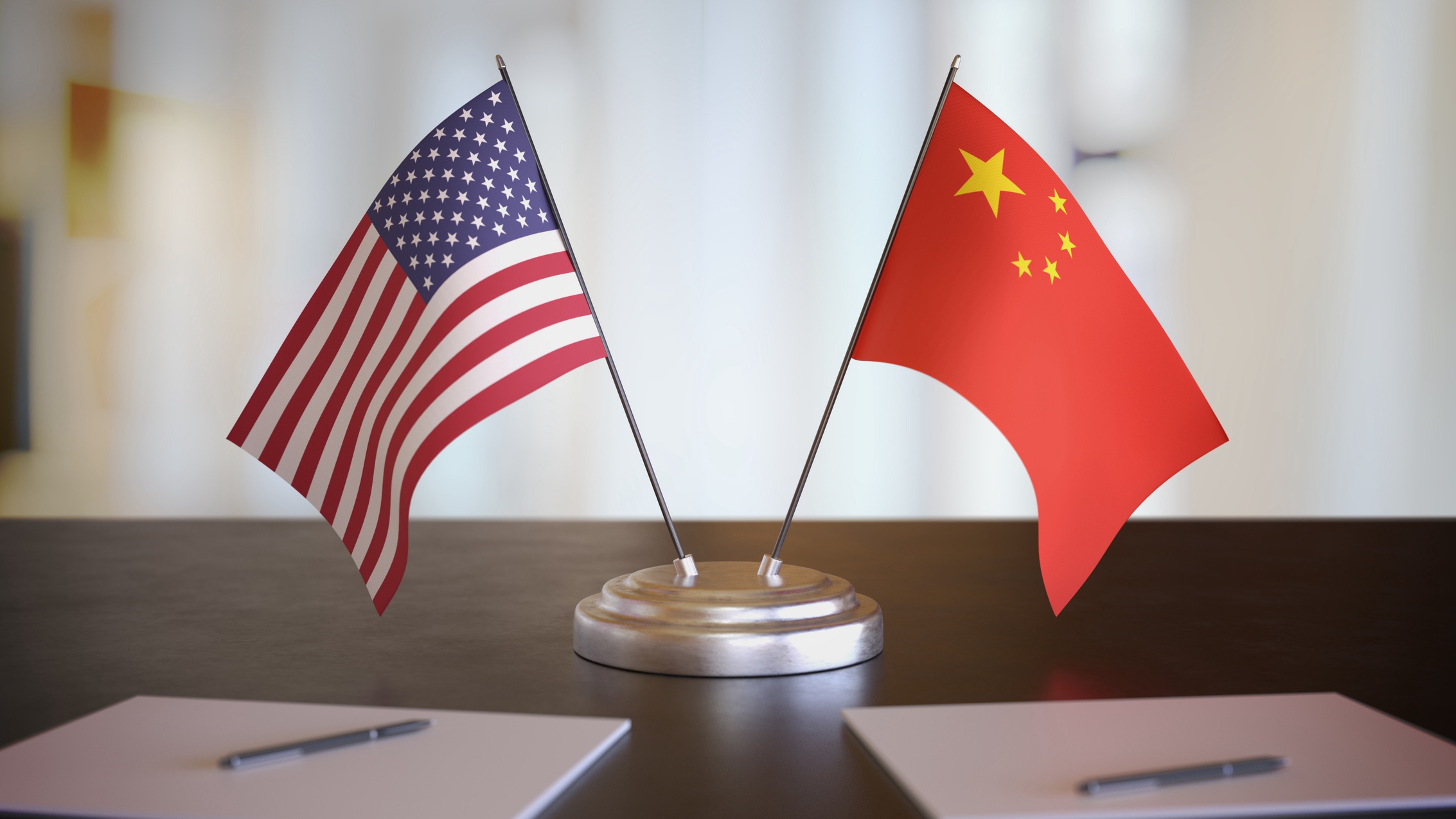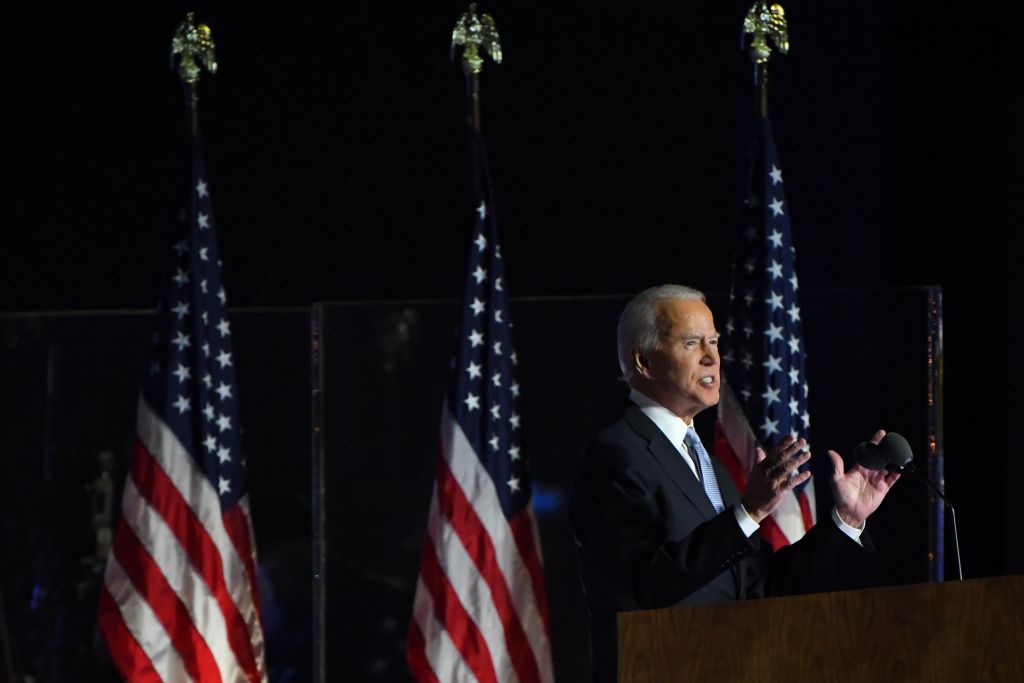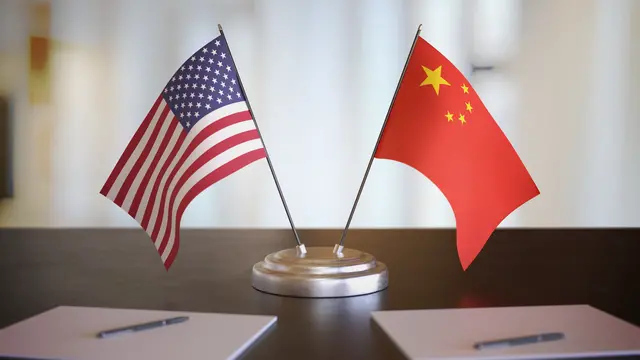
Getty
**Editor's Note: **Andrew Korybko is a Moscow-based American political analyst. The article reflects the author's opinions, and not necessarily the views of CGTN.
The mass media officially projected that former U.S. Vice President Biden will secure enough electoral votes to become the next president. Incumbent President Trump and his team earlier declared that they'll legally contest the results in several battleground states so it's still uncertain whether Biden will indeed be inaugurated on January 20 like he expects to be.
Nevertheless, this latest development makes it worthwhile to discuss whether Biden could succeed in brokering a new detente with China if he enters office.
Before addressing that, it's important to point out how committed he is to reversing as much of his predecessor's policies as possible. This might very well see the U.S. rejoining the Paris Agreement on climate change and the Joint Comprehensive Plan of Action with Iran, reviving multilateral trade talks such as the Trans-Pacific Partnership (TPP) with Asia and the Transatlantic Trade and Investment Partnership (TTIP) with Europe, and improving relations with NATO members.
In other words, multilateralism will define his presidency.
On the other hand, Biden will probably continue a few of Trump's policies such as his defacto military alliance with India and strategy of containment against Russia. The reason for this prediction is that there's a general consensus in the U.S. military establishment concerning the necessity to remain focused in those directions for national security reasons, whether rightly or wrongly understood as such.
It can be very difficult to stop bureaucratic inertia in a machine as complex as the U.S. military is, with all of its many moving parts.
Nevertheless, Biden's real test as president would be to repair the U.S.' damaged relations with China, to which end he'll have to rein in the Pentagon's hawks as best as possible in order to avoid provoking Beijing in the South China Sea like Trump has sought to do these past four years.

Joe Biden speaks in Wilmington, Delaware, U.S., November 7, 2020. /Getty
Biden would also do well to ensure that a comprehensive trade agreement is reached with China so as to put an end to the trade war once and for all. Taken together, these two steps could lay the basis for a new detente between them.
It should be kept in mind that Biden played a key role in the Obama Administration's "Pivot to Asia"; so he has plenty of experience dealing with such affairs. Furthermore, it's expected that he'll either return Obama-era officials to power or appoint those who were influenced by them.
This can be both good and bad for Chinese-American relations depending on whether these individuals decide to continue the Trump Administration's competition with Beijing (which built upon the "Pivot to Asia") or turn the page by cooperating with it instead.
It's too early to make a confident prediction about which of those two paths they'll ultimately settle upon and whether they'll succeed in resisting pressure from anti-Chinese Trump-era holdovers, the Pentagon and the powerful interests of the military-industrial complex, but there are still reasons to be optimistic.
Biden's strong belief in multilateralism suggests that while he might retain some elements of Trump's competition with China such as the Quad, he's also ideologically motivated to cooperate more closely with it as well.
Bilateral relations weren't perfect during the Obama era, but they weren't as terrible as they eventually became during the Trump era either. This makes it possible to discuss a new detente between the two sides which could be brought about through a series of pragmatic compromises on trade, military, technological and other issues. This could give Biden the proverbial breathing space needed to reverse many of Trump's other foreign policy decisions elsewhere such as in Europe and the Mideast, which will require lots of time and attention.
It would therefore be best if Biden prioritized repairing Chinese-American relations as soon as possible. As a first step in this direction, he could declare that he won't continue the Trump Administration's crusade against the country or its foreign companies like Huawei and TikTok. Biden should also make a public statement about changing the U.S.' provocative policy in the South China Sea.
(If you want to contribute and have specific expertise, please contact us at [email protected].)
 简体中文
简体中文

